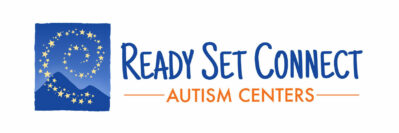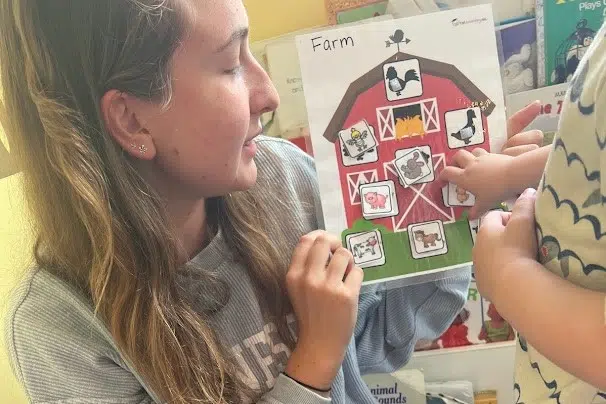When your child is diagnosed with autism, you are presented with numerous therapy options, one of which is ABA Therapy, which we use here at Ready Set Connect.
ABA stands for Applied Behavior Analysis. In this therapy, behavior is modified using positive reinforcement. A therapist will set goals for a skill or behavior for the child and use a rewards and consequence system to help them achieve it.
We use ABA therapy because it can be adjusted for each individual student, and it can be done anywhere – at home, school, or in the community. It is not just helpful for behavior but to teach life skills and can be done one-on-one or in a group setting, giving children the chance to interact with peers and learn social skills.
How Does It Work?
At Ready Set Connect, we take the ABC approach to ABA therapy. This means there is an
- Antecedent – event that happens before child’s behavior
- Behavior – the child’s behavior
- Consequence – the event following the behavior (positive or negative)
For example, the antecedent would be a therapist asking a child to put their book back on the shelf. The behavior is when the child returns the book to its proper place. The consequence is that the therapist praises the child, “Excellent job listening and putting the book back on the shelf, Lila!” In the same scenario, the behavior might be that the child ignores them, and the consequence is that the therapist repeats the request with direct eye contact.
Using this method, ABA therapy can increase social interaction, communication skills, a child’s ability to focus, and fewer outbursts and potentially harmful behaviors.
At the heart of ABA therapy is an appreciation of the unique gifts every child brings to the table while modifying certain behaviors in order to keep them safe and enhance communication skills. For example, children on the spectrum are often extremely empathetic but lack the ability to identify their complex emotions. In this instance, ABA therapy would work with the child to educate them on recognizing their own emotions as well as those of others.
What Should I Expect With ABA Therapy?
Children will be assessed for their skill level and development, and a plan will determine goals and objectives. An ABA therapist will work with the child to reach these goals, using a previously established way to measure progress.
Progress and goals are routinely reviewed to evaluate whether a skill or behavior has been learned or what work must still be done.
At Ready Set Connect, each child is given a thorough assessment measuring individual skill levels with gold-standard assessment tools (VB-MAPP – Verbal Behavior Milestones Assessment and Placement Program and AFLS – Assessment of Functional Living Skills).
Based on the assessment, our BCBA (Board Certified Behavior Analyst) creates learning objectives specific and tailored to each child. During their day at Ready Set Connect, the child will work with ABA therapists to achieve this goal while therapists are inputting data into our web-based metrics tool and, working in conjunction with our BCBAs, challenges are identified, objectives are updated, and successes are built upon.
For the children, it doesn’t feel like learning because all of this is happening while they are sitting in a reading circle, playing on the jungle gym, and socializing with friends.
What Should I Look for in an ABA Therapist or Therapy Program?
First, look for a clinical therapist with board certifications. They will have BCBA (Board Certified Behavior Analyst) after their name. Some therapists work under BCBAs to provide care to young people on the spectrum.
Second, ask the important questions about the program, staff, and insurance coverage. Start off with these:
- How many BCBAs do you have on staff, and if they work with therapists, how much ongoing supervision do the therapists receive from them?
- What is communication like between myself and the BCBA?
- Are staff required to go to trainings or professional workshops?
- What is your staff turnover?
- Do you offer parent trainings?
- Are staff background checks required?
- How often may I observe my child?
- How is data collected and shared with parents?
- How many hours of therapy will my child receive, and what is the structure of sessions?
- How is it determined when/if therapy is no longer necessary?
- What does insurance cover, and what are parents financially responsible for?
- Are there equipment charges or expenses parents need to be aware of?
ABA therapy is one of the most widely used therapies for children on the autism spectrum. It is important to find a therapist or program that feels right for you and your child to have a better outcome. If you have questions about ABA therapy, you can always reach out to us to discuss them.

